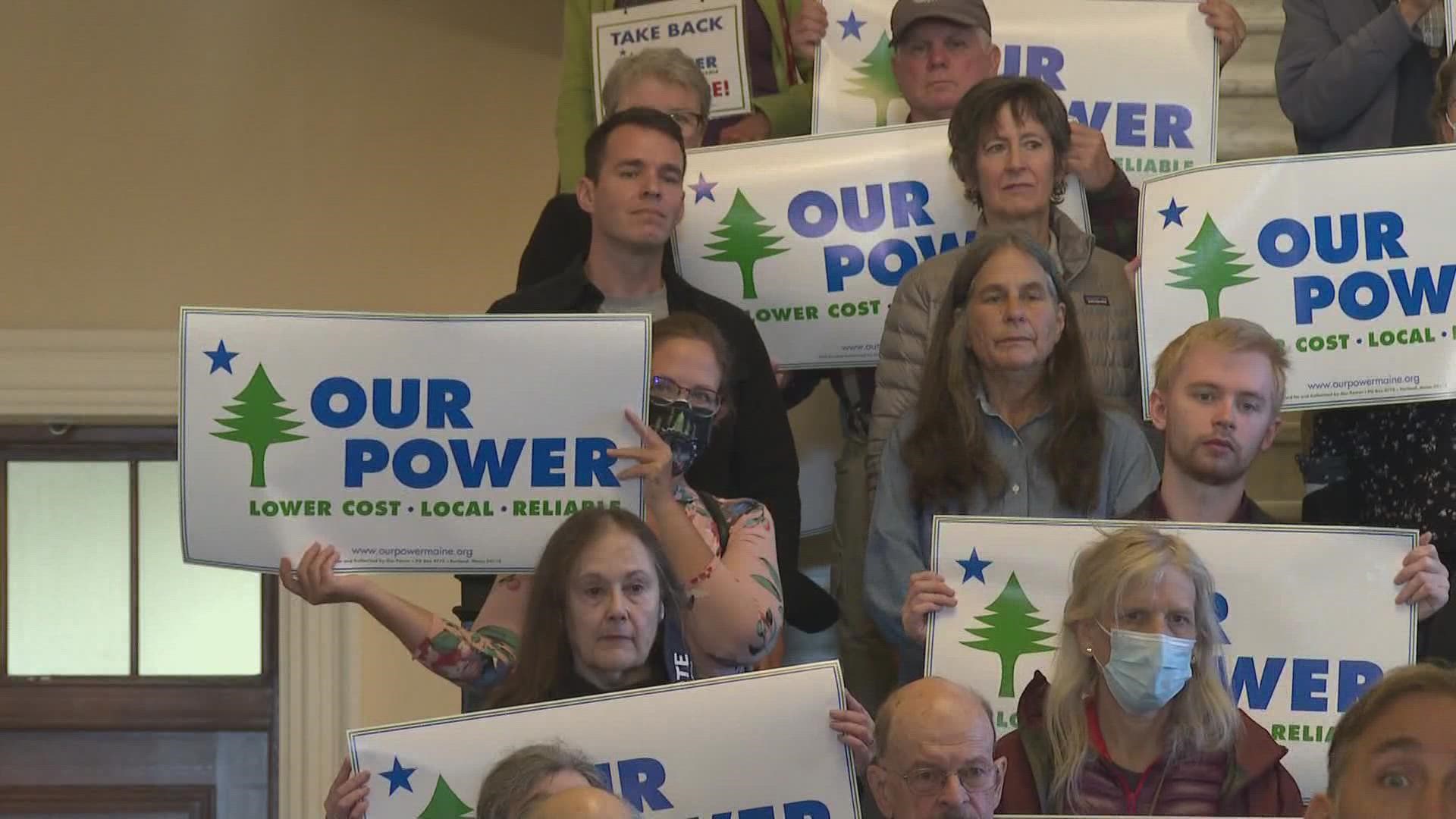AUGUSTA, Maine — Eighty thousand signatures for the Our Power referendum are now at the Maine Secretary of State's Office.
“Eighty thousand conversations about a vision for a new energy future,” one speaker at a press conference on Monday said.
Our Power said it collected signatures from across the state and is looking to create a nonprofit consumer-owned utility company and eliminate Central Maine Power and Versant.
Representatives of the organization said they hope to replace CMP and Versant with the Pine Tree Power Company to keep control in Maine and create more affordable and reliable energy.
“Every time the rates increase, our members have to make impossible decisions about paying their electric bill, buying groceries or prescriptions, or other necessities,” Amy Halstead of the Maine People’s Alliance said.
If the Pine Tree Power Company is created, Our Power leaders said it would have a board of directors, not a CEO.
That board will be “democratically elected to meet our goals of clean energy independence, lower cost, better reliability, and better internet access to rural Maine,” Beth Schiller of Our Power said.
But not everyone is convinced this is the way to go.
“It will have a hugely negative impact,” Dick Rogers said.
Rogers is part of Maine Affordable Energy Coalition. He said this would be problematic for union workers at CMP and Versant.
He said it would “eliminate the ability to strike [and] eliminate the ability to have binding arbitration over economic issues, which is huge.”
That is why Maine Affordable Energy Coalition also handed in more than 92,000 signatures to not only stop Our Power's proposal, but to force a referendum on any new Maine state government debt of more than $1 billion, which Maine Affordable Energy said Our Power's proposal would easily exceed.
“The proposal to seize CMP and Versant Power by eminent domain would cost an estimated $13.5 billion,” Willy Ritch from the Maine Affordable Energy Coalition added.
The next step is to have these signatures from both referendum questions verified by the secretary of state. They would then go through the legislative process before getting on the ballot.
If all goes as planned, both questions will be on the ballot next November.

